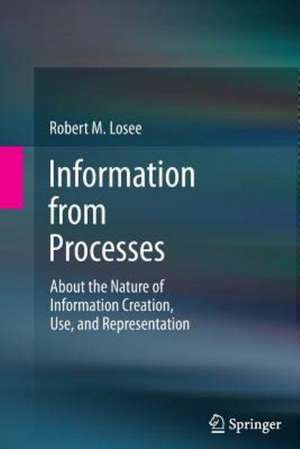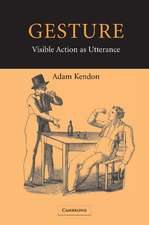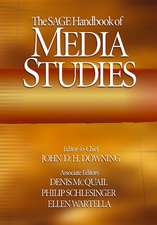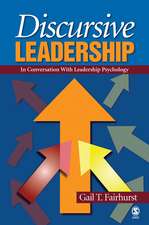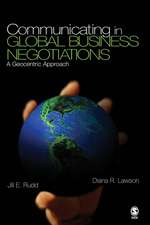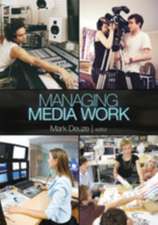Information from Processes: About the Nature of Information Creation, Use, and Representation
Autor Robert M. Loseeen Limba Engleză Paperback – 20 sep 2014
One may understand information in a variety of ways. For some, information is found in facts that were previously unknown. For others, a fact must have some economic value to be considered information. Other people emphasize the movement through a communication channel from one location to another when describing information. In all of these instances, information is the set of characteristics of the output of a process. Yet Information has seldom been studied in a consistent way across different disciplines.
Information from Processes provides a discipline-independent and precise presentation of both information and computing processes. Information concepts and phenomena are examined in an effort to understand them, given a hierarchy of information processes, where one process uses others. Research about processes and computing is applied to answer the question of what information can and cannot be produced, and to determine the nature of this information (theoretical information science). The book also presents some of the basic processes that are used in specific domains (applied information science), such as those that generate information in areas like reasoning, the evolution of informative systems, cryptography, knowledge, natural language, and the economic value of information.
Written for researchers and graduate students in information science and related fields, Information from Processes details a unique information model independent from other concepts in computer or archival science, which is thus applicable to a wide range of domains. Combining theoretical and empirical methods as well as psychological, mathematical,philosophical, and economic techniques, Losee’s book delivers a solid basis and starting point for future discussions and research about the creation and use of information.
| Toate formatele și edițiile | Preț | Express |
|---|---|---|
| Paperback (1) | 330.56 lei 6-8 săpt. | |
| Springer Berlin, Heidelberg – 20 sep 2014 | 330.56 lei 6-8 săpt. | |
| Hardback (1) | 335.36 lei 6-8 săpt. | |
| Springer Berlin, Heidelberg – aug 2012 | 335.36 lei 6-8 săpt. |
Preț: 330.56 lei
Preț vechi: 413.21 lei
-20% Nou
Puncte Express: 496
Preț estimativ în valută:
63.26€ • 68.69$ • 53.14£
63.26€ • 68.69$ • 53.14£
Carte tipărită la comandă
Livrare economică 22 aprilie-06 mai
Preluare comenzi: 021 569.72.76
Specificații
ISBN-13: 9783642429682
ISBN-10: 3642429688
Pagini: 260
Ilustrații: XVIII, 242 p.
Dimensiuni: 155 x 235 x 14 mm
Greutate: 0.37 kg
Ediția:2012
Editura: Springer Berlin, Heidelberg
Colecția Springer
Locul publicării:Berlin, Heidelberg, Germany
ISBN-10: 3642429688
Pagini: 260
Ilustrații: XVIII, 242 p.
Dimensiuni: 155 x 235 x 14 mm
Greutate: 0.37 kg
Ediția:2012
Editura: Springer Berlin, Heidelberg
Colecția Springer
Locul publicării:Berlin, Heidelberg, Germany
Public țintă
ResearchCuprins
Information.- Processes.- Representation.- Improving the Informative.- Words and Knowledge.- Economic Value.- Information Redux.
Recenzii
From the reviews:
“This book is an essay on information seen from the process output perspective. The author makes an attempt to characterize the nature of processes and the ways of obtaining information as an output. … This book can be recommended to a broad group of people. Beginners will appreciate the approachable way of content explanation. By presenting a large spectrum of aspects, it can be also a valuable source of information for experts.” (Jozef Woźniak, Zentralblatt MATH, Vol. 1257, 2013)
“This book is an essay on information seen from the process output perspective. The author makes an attempt to characterize the nature of processes and the ways of obtaining information as an output. … This book can be recommended to a broad group of people. Beginners will appreciate the approachable way of content explanation. By presenting a large spectrum of aspects, it can be also a valuable source of information for experts.” (Jozef Woźniak, Zentralblatt MATH, Vol. 1257, 2013)
Notă biografică
Robert Losee is a Professor at the University of North Carolina at Chapel Hill. He has authored other monographs, including The Science of Information and Text Retrieval and Filtering, as well as numerous articles, emphasizing the nature of information, analytic models of how information retrieval systems perform, and methods of organizing and tagging text to allow for improved access to information.
Textul de pe ultima copertă
Information is an important concept that is studied extensively across a range of disciplines, from the physical sciences to genetics to psychology to epistemology. Information continues to increase in importance, and the present age has been referred to as the “Information Age.”
One may understand information in a variety of ways. For some, information is found in facts that were previously unknown. For others, a fact must have some economic value to be considered information. Other people emphasize the movement through a communication channel from one location to another when describing information. In all of these instances, information is the set of characteristics of the output of a process. Yet Information has seldom been studied in a consistent way across different disciplines.
Information from Processes provides a discipline-independent and precise presentation of both information and computing processes. Information concepts and phenomena are examined in an effort to understand them, given a hierarchy of information processes, where one process uses others. Research about processes and computing is applied to answer the question of what information can and cannot be produced, and to determine the nature of this information (theoretical information science). The book also presents some of the basic processes that are used in specific domains (applied information science), such as those that generate information in areas like reasoning, the evolution of informative systems, cryptography, knowledge, natural language, and the economic value of information.
Written for researchers and graduate students in information science and related fields, Information from Processes details a unique information model independent from other concepts in computer or archival science, which is thus applicable to a wide range of domains. Combining theoretical and empirical methods as well aspsychological, mathematical, philosophical, and economic techniques, Losee’s book delivers a solid basis and starting point for future discussions and research about the creation and use of information.
One may understand information in a variety of ways. For some, information is found in facts that were previously unknown. For others, a fact must have some economic value to be considered information. Other people emphasize the movement through a communication channel from one location to another when describing information. In all of these instances, information is the set of characteristics of the output of a process. Yet Information has seldom been studied in a consistent way across different disciplines.
Information from Processes provides a discipline-independent and precise presentation of both information and computing processes. Information concepts and phenomena are examined in an effort to understand them, given a hierarchy of information processes, where one process uses others. Research about processes and computing is applied to answer the question of what information can and cannot be produced, and to determine the nature of this information (theoretical information science). The book also presents some of the basic processes that are used in specific domains (applied information science), such as those that generate information in areas like reasoning, the evolution of informative systems, cryptography, knowledge, natural language, and the economic value of information.
Written for researchers and graduate students in information science and related fields, Information from Processes details a unique information model independent from other concepts in computer or archival science, which is thus applicable to a wide range of domains. Combining theoretical and empirical methods as well aspsychological, mathematical, philosophical, and economic techniques, Losee’s book delivers a solid basis and starting point for future discussions and research about the creation and use of information.
Caracteristici
Provides a discipline-independent model of information creation and information use Combines theoretical and empirical methods as well as psychological, mathematical, philosophical, and economic techniques Complemented by the website www.informationfromprocesses.org, which includes the CHIPL programming language Includes supplementary material: sn.pub/extras Includes supplementary material: sn.pub/extras
